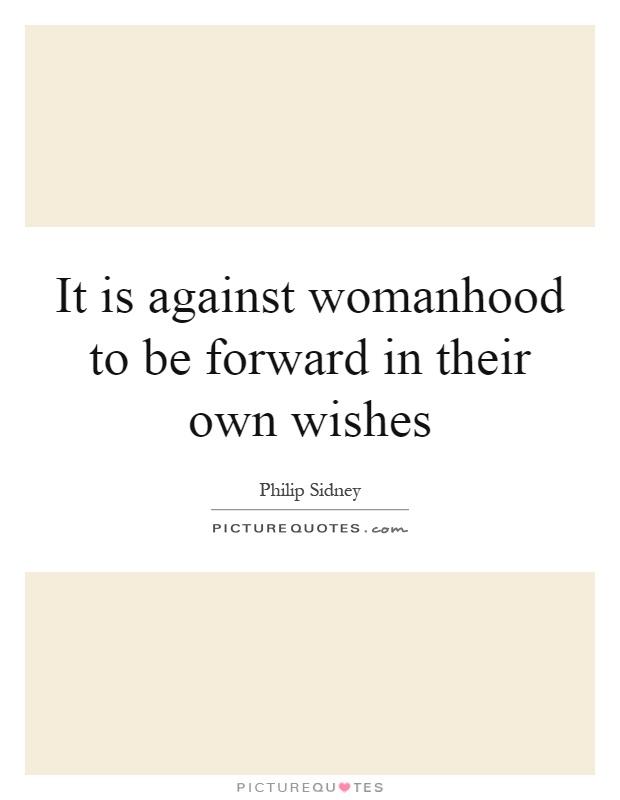It is against womanhood to be forward in their own wishes

It is against womanhood to be forward in their own wishes
In the context of Philip Sidney, a prominent figure in Elizabethan literature and a staunch advocate for chivalry and courtly love, the statement "It is against womanhood to be forward in their own wishes" reflects the prevailing attitudes towards women during the Renaissance period. In Sidney's time, women were expected to be demure, submissive, and obedient to the men in their lives. They were seen as the weaker sex, in need of protection and guidance from their male counterparts.Sidney's own writings, particularly his sonnet sequence Astrophil and Stella, often depict women as objects of desire and admiration, to be pursued and won over by the male protagonist. In this context, the idea that it is unbecoming for women to assert their own wishes or desires can be seen as a reflection of the patriarchal society in which Sidney lived.
The notion that it is "against womanhood" for women to be forward in their own wishes suggests that women who are assertive or independent are somehow going against their natural role in society. This attitude can be traced back to the medieval concept of courtly love, in which women were idealized as pure, virtuous beings who were to be worshipped from afar by their male admirers. Any deviation from this ideal was seen as a threat to the established order of society.
However, it is important to note that Sidney's views on women were not necessarily representative of all Renaissance thinkers. There were certainly women in his time who defied societal expectations and asserted their own wishes and desires. For example, Queen Elizabeth I, who ruled England during Sidney's lifetime, was a powerful and assertive monarch who defied traditional gender roles and expectations.












 Friendship Quotes
Friendship Quotes Love Quotes
Love Quotes Life Quotes
Life Quotes Funny Quotes
Funny Quotes Motivational Quotes
Motivational Quotes Inspirational Quotes
Inspirational Quotes